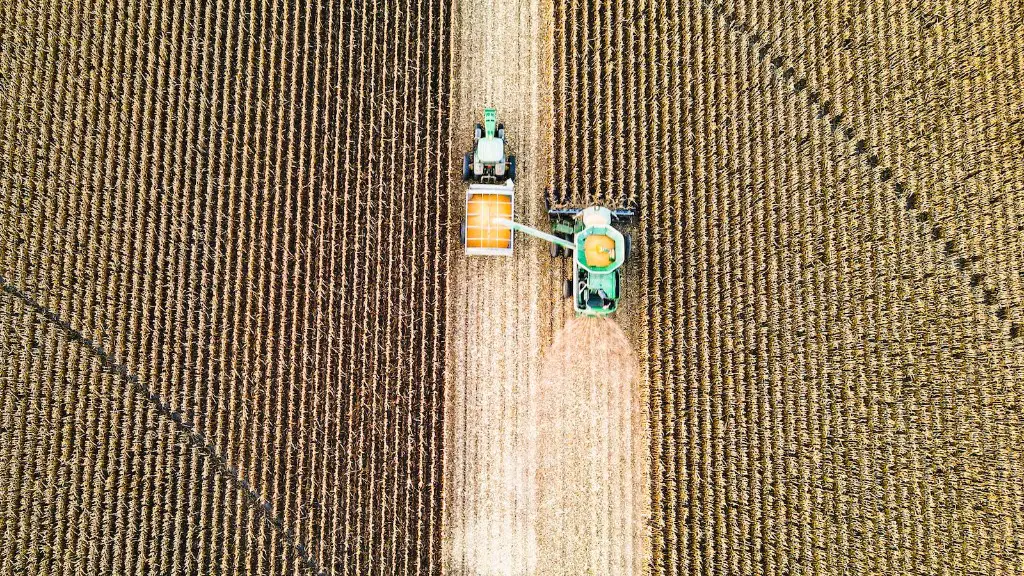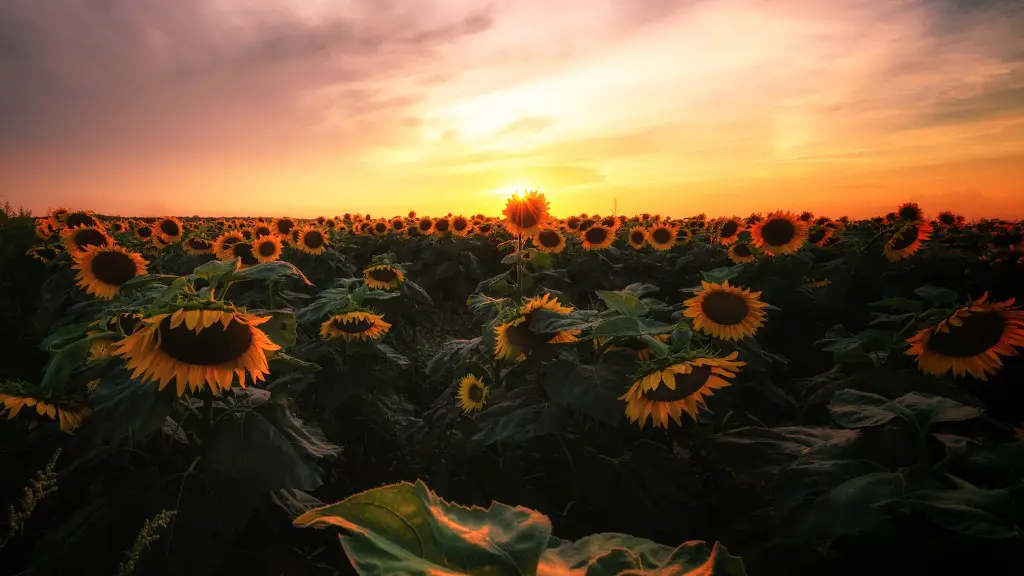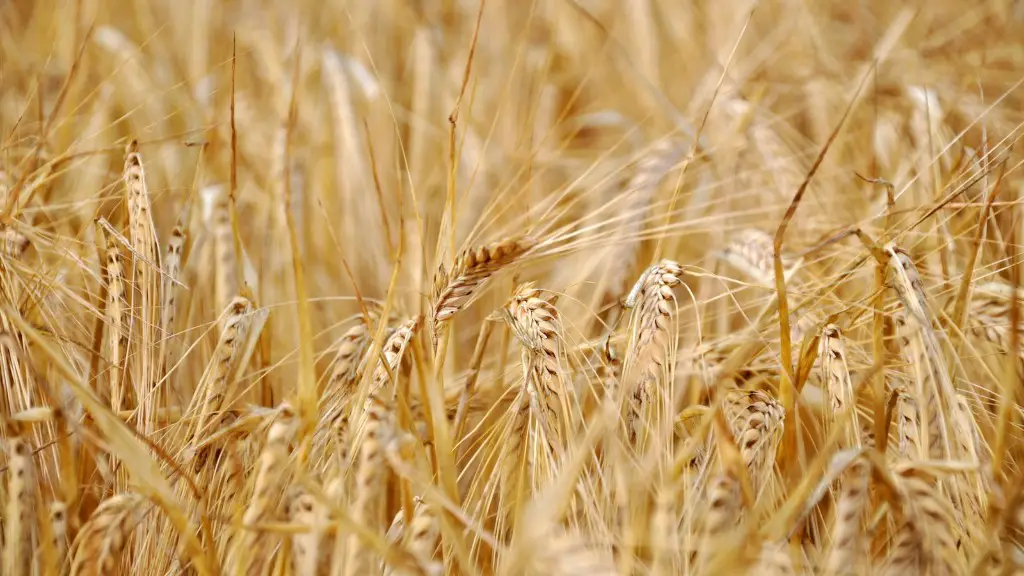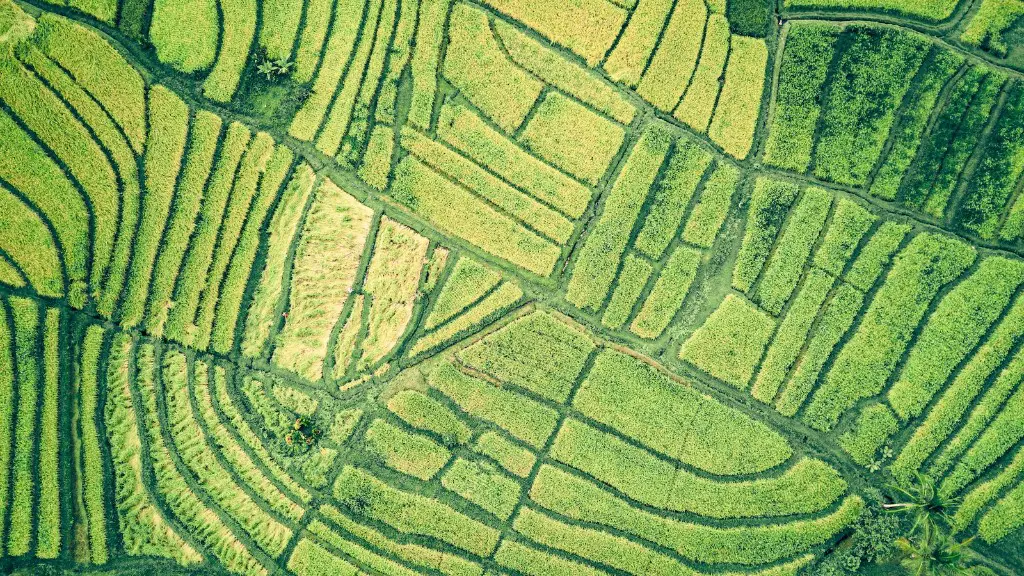Honeybees play a vital role in agriculture as they are responsible for pollinating crops. Pollination is the process of transferring pollen from the male reproductive organ, or stamen, to the female reproductive organ, or pistil, of a flower. This process is necessary for the plant to produce seeds, fruits, and vegetables. Honeybees are attracted to the flowers by their color, shape, and scent. They collect the pollen on their legs and body as they move from flower to flower. When they return to their hive, they deposit the pollen into the honeycomb where it is used to make honey.
Honeybees are vital to agriculture for a variety of reasons. First, they are responsible for pollinating a large percentage of the world’s crops. This pollination is essential for plant reproduction and yield. Second, honeybees produce honey, which is a valuable food source for humans. Finally, beeswax has many uses, including in cosmetics and as a food wrapping.
Why are honey bees important to agriculture?
Honeybees are important pollinators of crops in the United States. They pollinate more than 130 types of fruits, nuts, and vegetables, worth about $15 billion each year. Honeybees also produce honey, worth about $32 million in 2017.
Bees are an important part of the ecosystem because they help pollinate food crops. Pollination is when insects transfer pollen from one plant to another, fertilizing the plant. Bees have little hairs all over their body that attract pollen, and they play a big role in the pollination process.
Why are bees important for agriculture farming quizlet
Bees are important pollinators in many ecosystems. They transfer pollen from the male reproductive organs (anthers) of a flower to the female reproductive organs (stigma). This process is necessary for the plant to produce seeds.
Bees are attracted to flowers by their color, shape, and scent. When they land on a flower, they brush against the anthers and collect pollen on their body. They then fly to another flower and transfer the pollen to the stigma. The pollen grain germinates and the plant’s reproductive cycle is complete.
Without bees, many plants would not be able to reproduce and would eventually die out. This would have a ripple effect on the entire ecosystem, as other animals that rely on plants for food would also disappear.
Bees are essential for the pollination of many fruits, vegetables, and other crops. Studies have shown that pollination by bees can improve the abundance of these crops. This is especially true for apples, blueberries, and strawberries. Without bees, these crops would not be as abundant.
Do honey bees help all agriculture?
Honeybees play an important role in the pollination of crops, but they are not the only pollinators out there. Other insects, such as wild bees and wasps, can also pollinate crops. However, honeybees are the most efficient pollinators and their services are in high demand. This is because the production of crops that require honeybee pollination is increasing throughout the world. Pollination by honeybees increases the size, quality and/or stability of harvests for an estimated 70 per cent of the world’s main crops. This makes honeybees an essential part of the global food system.
In the United States, more than one-third of all crop production – 90 crops ranging from nuts to berries to flowering vegetables – requires insect pollination. Managed honey bee colonies are our primary pollinators, adding at least $15 billion a year by increasing yields and helping to ensure superior-quality harvests.
What would happen if honey bees went extinct?
We may lose all the plants that bees pollinate which would then mean losing all of the animals that eat those plants. This could have a serious impact on the global human population as we would have half the amount of fruit and vegetables. We need to be aware of the importance of bees and do all we can to protect them.
Bees play an important role in pollinating crops and wild plants. Without them, many plants would not be able to grow. This makes bees essential for the growth of many crops, including food crops.
What would happen if bees went extinct
Bees are crucial for the pollination of many crops, and without them, the availability and diversity of fresh produce would decline substantially. Human nutrition would likely suffer as a result, as many crops that would not be cost-effective to hand- or robot-pollinate would be lost. hobbyists.
Beekeeping can be a very efficient way to reduce poverty, as it requires very little financial or labour input. It is a flexible and gender friendly enterprise which does not compete for resources with other agricultural activities. By creating jobs within the beekeeping value chain, beekeeping can help to reduce poverty levels.
What are the benefits of bee farming?
Bees play an important role in our ecosystem and beekeepers have a responsibility to protect them. Beekeeping can be done when other work allows and does not require daily care. Beekeepers have a financial reason to conserve the employment; ensuring that flowers are available and bees are protected. Bees pollinate cultivated crops and wild plants. Beekeeping generates income without destroying habitat.
As demands for food continue to increase, it is more important than ever to maximize crop yields. One way to do this is by using honeybees as pollinators. By doing so, yields can be increased by as much as 300%. This is especially beneficial for local crops such as canola, alfalfa, and sunflower. A good pollination system is not only good for crops, but also for the overall health of the ecosystem.
What is the value of bee pollination to US agriculture
Bees are amazing creatures that play a vital role in our ecosystem. Every season, they pollinate from plants and flowers, delivering billions of dollars in economic value. Between $235 and $577 billion worth of annual global food production relies on their contribution.
native bees, and flies also contribute to pollination, but honey bees are the most important species in terms of economic value. In the United States alone, honey bees contribute $15 billion to the agricultural economy.
While bees are vital to our food system, they are facing challenges. Pesticides, monoculture crops, and habitat loss are just some of the threats they face. We need to do more to protect these important creatures so that they can continue to pollinate our food and support our economy.
If you want to ensure a good harvest, you need to take care of your bees! Make sure they have a healthy environment to live in and that you are providing them with enough food. This will help them to stay strong and produce lots of offspring, which in turn will ensure that your plants are properly pollinated.
How many crops would we lose without bees?
Bees are one of the most important pollinators of crops worldwide. Without them, yields on about 35% of agricultural land would suffer, and 87 of the world’s leading food crops would be affected. Worldwide, farmers are growing more and more pollinator-dependent crops like cocoa, tomatoes, almonds, and apples. The decline in bee populations is a serious issue that needs to be addressed in order to protect our food supply.
Without pollination, agricultural production would be reduced by up to 75 per cent, meaning that less food would be available for human consumption. One out of every three mouthfuls of our food depends on animals like bees and pollination taking place.
Bees are under threat from a number of human activities, including the use of pesticides, land-use change and climate change. It is estimated that around one third of managed honeybee colonies were lost globally over the winter of 2018-19.
The decline in pollinator populations is a cause for concern as it could have serious implications for food security. We need to do more to protect these vital creatures.
Can crops grow without bees
Though a majority of crops don’t require animal pollination, there are some staple foods that do need help from bees. Wheat, rice, and corn are among those 28 crops that require assistance from bees in order to pollinate. This means that without the help of bees, these crops would not be able to grow. Animal pollination is essential for these crops, and without it, we would not have the food that we rely on.
Honey bees are vital to the agricultural industry in the United States. They are managed and used to pollinate over 100 crops grown in North America, and contribute $15 billion to the US economy every year. Many crops, such as almonds, which contribute $48 billion to the US industry each year, rely on honey bees for more than 90% of their pollination.
Conclusion
Honeybees are so vital to agriculture because they help pollinate crops. Pollination is when the bee collects pollen from the male plant and transfers it to the female plant. This helps the plant to produce fruit or seeds.
Honeybees are vital to agriculture for a number of reasons. First, they are responsible for pollinating a large percentage of the world’s crops. Without pollination, many plants would not be able to produce fruit or seeds, and would eventually die off. Honeybees also produce honey, which is not only a delicious and healthy food, but also has a number of medicinal uses. Finally, beeswax is used in a variety of products, from candles to cosmetics.





